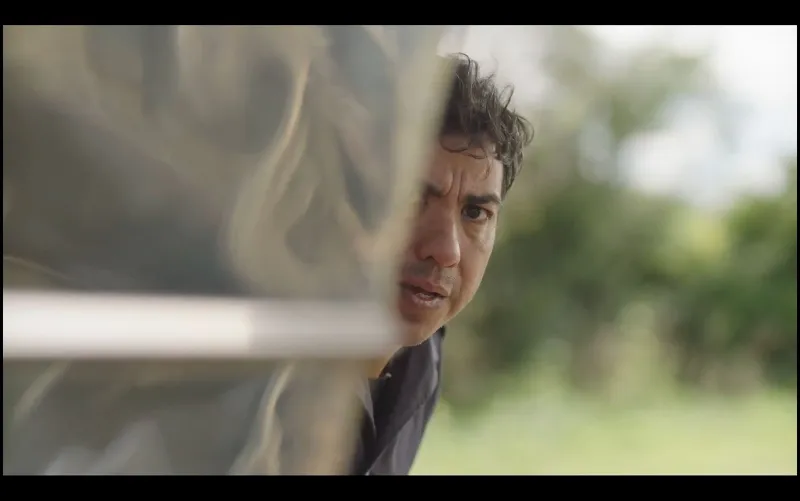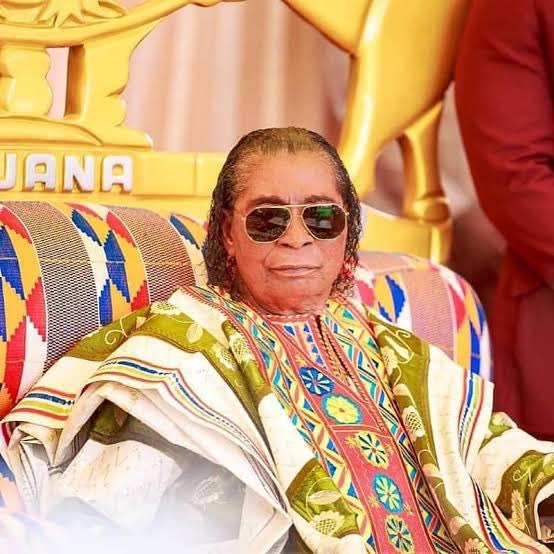
The 5th edition of Iberseries & Platino Industria hosted Uruguay’s presentation of its upcoming releases that include the latest from Daniel Hendler whose “27 Nights” opened the San Sebastian Film Festival in September.
“These upcoming titles we’re presenting at Iberseries highlights our commitment to the development and international projection of Uruguayan cinema, recognizing the cultural and economic value of its productions,” said Gisella Previtali, president of Uruguay’s national film agency, ACAU.
“Our presentation is crucial to increasing the visibility and impact of Uruguayan cinema on the international stage,” she told Variety, adding: “It’s indeed a great opportunity to showcase the work of our filmmakers and talent, opening doors to new collaborations and opportunities abroad.”
According to ACAU’s head of international affairs, Marcio Migliorisi, the agency supports the Uruguayan film industry through a selective fund of $1 million, awarded via open calls for development, production, promotion and distribution. In addition, ACAU manages the Uruguayan Audiovisual Program (PUA), a cash rebate fund offering $12 million in reimbursements for co-productions and international production services. These financial tools, among others, have directly supported the 2026 Uruguayan releases showcased at Iberseries.
A Drill-Down on the Upcoming Slate:
DOCUMENTARIES
“Unforgettable Montevideo” (Montevideo inolvidable,” Alfredo Ghierra, 2025, Estudio 2 de Mayo) Uruguay/Panama
A hybrid documentary from renowned visual artist Alfredo Ghierra that reimagines Montevideo’s architectural identity through a cultural and emotional lens. Positioned at the intersection of urban exploration and personal memory
“The Fable of the Turtle and the Flower” (“La fabula de la tortuga y la flor,” Carolina Campo Lupo, 2025, Monarca Films) Uruguay/Spain
A deeply personal and formally inventive co-production between Uruguay and Spain, this documentary blends intimate vérité footage with poetic reflection on terminal illness and enduring friendship.
“The Boy Who Dreams” (“El niño que sueña,” Andrés Varela, 2025, Coral Cine) Uruguay/France
A character-driven biographical documentary anchored in the life and work of an acclaimed visual artist who, after surviving a life-altering stroke in 2011, now creates in seclusion in rural France. Directed by Varela (“Benedetti, 60 años con luz” ) shot across two continents, the film combines strong production values with a contemplative narrative.
“An Errant Dream” (“Un sueño errante,” Sofía Betarte, 2025, Montelona) Uruguay/Brazil
Tackling migration, gig work and motherhood through a feminist and cross-border lens, this Uruguayan-Brazilian documentary follows a Cuban immigrant navigating economic uncertainty in Montevideo.
“Instinct” (Andrés Varela, Carlos Morelli, 2026, El Delirio Story House) Uruguay/Germany
An inclusive, cross-cultural documentary chronicling the German theater company Thikwa—comprised of neurodiverse artists—as they prepare to premiere a new performance in Uruguay. Shot in Germany and Montevideo, the film examines themes of accessibility, artistic expression and maternal identity.
“Uncomfortable Body” (“Cuerpo incomodo,” Estefanía Martínez, 2026, Región Cinema – Insumisa Films) Uruguay/Spain
A first-person, introspective documentary exploring chronic illness and memory through the lens of director Estefanía Martínez, who lives with multiple sclerosis. Shot between Uruguay and Spain, the film aims to engage with embodiment, resilience and identity.
“Ponsonbyland” (Ramiro Cabrera, 2025, Asador Cine) Uruguay/Belgium
This documentary explores the role of British diplomat John Ponsonby in the formation of both Uruguay and Belgium as independent nations. Through a historical and comparative lens, the film highlights parallels and contrasts in the two countries’ paths to statehood—while also examining how those founding moments echo in the present-day identity struggles of their citizens.
“Hitlerland” (Ana Tipa, 2026, Huerfanita Films) Uruguay/Argentina
A provocative and darkly ironic documentary that explores the identity of Hitler Da Silva, a man whose name shaped his childhood and his social experiences. Anchored in Ana Tipa’s observational lens, the film uses a singular case to reflect on stigma, naming and destiny within Latin American contexts.
“Into the River” (“Rio adentro,” Pablo Martínez Pessi, 2026, Gabinete Films) Uruguay/Argentina
This observational documentary follows Lucas, a fisherman and photographer, as he embarks on a personal and artistic journey into the riverside forests of Uruguay and Argentina. Intimately shot and shaped by a slow cinema aesthetic, the film documents a vanishing way of life and a personal coming-of-age as an artist.
“The Black Box” (“La caja negra,” Elisa Barbosa Riva, 2025, Montelona) Uruguay/Colombia
Blending investigative research with poetic inquiry, this Uruguay-Colombia co-production revisits the hijacking of Avianca Flight HK 1022 in 1969 and the enigmatic figure at its center: a man who vanished into Cuban cultural history.
FICTION FEATURE FILMS
“Keep Coming Back” (“Siempre vuelven,” Sergio De León, 2025, Cordón Films) Uruguay/Argentina
A moody, genre-tinged coming-of-age story about Emilio, a teenager navigating grief, sexuality and an inherited curse. With elements of magical realism and a strong visual concept.
“Chinese Burn” (“Quemadura China,” Verónica Perrotta, 2025, Verónica Perrotta) Uruguay/Brazil
Blurring the line between reality and fiction, this surreal chamber piece centers on Siamese twins facing surgical separation, and a brother who wants to join them. The film deconstructs physical identity, familial bonds and the performative nature of gender and desire – all while its central location teeters on collapse.
“The 7 Bullets” (“Las 7 balas,” Sebastián Pérez Pérez, 2026, McGuffin) Uruguay
Structured as a multi-perspective thriller, “The 7 Bullets” reconstructs the events of a chaotic bar attack in Montevideo, drawing connections between random violence, media sensationalism and latent political tensions.
“The Other Lara” (“El robo de Lara,” Juan Manuel Solé, 2026, Region Cinema) Uruguay
A bold cross-media narrative that spans a feature film and an interactive video game, The Other Lara” follows a photographer and cosplayer whose identity is stolen in the digital world. As fiction and technology intersect, the project opens new terrain for narrative experimentation and audience engagement.
“Dogs” (“Perros,” Gerardo Minutti, 2025, Cinevinay – Cimarrón Cine) Uruguay/Argentina
A darkly comedic social satire in which two neighboring families spiral into conflict over a missing dog. With sharp writing and an escalating sense of absurdity, “Dogs” offers a microcosmic look at class tensions, resentment and human pettiness. Produced by Sandino Saravia Vinay, whose production credits take in “Roma,” “The Blue Trail” and “Birds of Passage,” and Latin-American production-services powerhouse Cimarrón (“The Ravaging Wind”).
“A Loose End” (“Un cabo suelto,” Daniel Hendler, 2026, Cordón Films) Uruguay/Argentina
Santiago, a low-ranking Argentine police officer, crosses into Uruguay on the run from his own force. Armed only with his uniform and wit, he drifts from roadside food stalls to rural hideouts, surviving by charm and instinct. With elements of social realism and light absurdism, the film balances comedy and drama as Santiago attempts to reassemble his life. An identity dramedy from Hendler, fast emerging as a director, which premiered in Venice and took a special mention at San Sebastian’s Horizotes Latinos last month.
John Hopewell contributed to this article.



